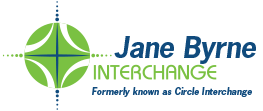Public Involvement
Many opportunities for the public to provide input on their needs and potential solutions within the study area will be provided during the study process. Forums include a Project Working Group (PWG), a public meeting, and a public hearing. Through these meetings and other means, IDOT is proactively seeking stakeholder input and partnerships early and often.
A stakeholder is anyone who could be affected by the project and has a stake in its outcome. Stakeholders are identified as all residents of the study area, users of the facility, and those interested parties who can directly affect the outcome of a planning process.
A detailed program has been developed and tailored to the specific outreach needs of the Circle Interchange project, and compiled in a document known as the Stakeholder Involvement Plan (SIP).
Stakeholder Involvement Plan (SIP)
The Stakeholder Involvement Plan (SIP) seeks to increase public awareness, interaction and inclusiveness, as well as enable accessibility to information to help ensure a positive outcome. The SIP promotes the following:
- Proactive outreach to stakeholders;
- Early and continuous community participation;
- Reasonable access to information in clear, jargon free language;
- Opportunity for public comment prior to key decisions; and
- Focus stakeholder participation on decisions.
The design and implementation of a flexible stakeholder involvement program that is responsive to the unique conditions surrounding the project, will provide for continuing substantive input, ensure that public concerns can be expressed and considered, and meet all federal, state, and local requirements.
Project Working Group (PWG)
The PWG will provide technical input and broad perspectives, as well as community level input, regarding every aspect of the Circle Interchange project. The PWG consists of IDOT staff, governmental bodies, transportation agencies, study area municipal leaders, interested groups or organizations, representatives from City of Chicago, and the Chicago Metropolitan Agency for Planning.
The PWG will meet approximately four times throughout the Phase I project timeline. The general public is welcome to attend and observe these meetings.

Public Outreach
Stakeholder involvement for the Circle Interchange project will be an ongoing process from project initiation through completion. A public meeting will be held at the early in the project development process to seek public input in the identification of possible alternatives.
Phase 1 Project Timeline

- Small Group Meetings: Small group meetings will engage stakeholders, share information and foster discussion by: addressing specific project issues; allowing for more specialized discussions and input; and, aiding the general public in better understanding the project goals and objectives.
- Agency Coordination: Agency and Municipal meetings will be held to discuss and coordinate specific project issues with those that would be impacted by the project.
- Speakers' Bureau: A speakers' bureau, consisting of IDOT and Consultant staff, will be assembled to present project-related information to interested local civic or service organizations. These meetings will occur as requested.
- Public Meeting/Public Hearing for the Circle Interchange will be held at key points during the study to engage the public. These meetings will encourage public attendance and foster public awareness of project developments and alternatives that are being evaluated. They will also provide a forum for general public input, including concerns and comments regarding project alternatives. One public meeting is scheduled for August 30, 2012. A public hearing will then provide the public with the opportunity to view and provide testimony on the preferred alternative.
Comments received at the public meeting will be documented and the information will be considered as a part of the analysis and evaluation of the improvement alternative. Individuals on the mailing list will receive invitations in the mail announcing meeting information.
Other Public Involvement Opportunities
In addition to the meeting opportunities described in the preceding section, there will be several other methods for the public to obtain information about the project. These methods (noted below) will provide information as well as the opportunity for feedback regarding upcoming public meeting/hearing, project schedule, and general project status updates within the study area.
Mailing List and e-subscription
To support public meeting invitations, newsletter distribution and other direct public contact, a mailing list has been developed and updated. Phone numbers and e-mail addresses will be added to the list, as available. If you would like to be added to the mailing list to receive project related material or to receive electronic notices about website updates, please fill out the comment/mailing list form.
A project newsletter will be printed over the course of the study. This publication will feature the latest project news and will be used as a means of communicating information requested about the project.
Comment and Mailing List Form
Please fill out a comment form, as we are interested in your thoughts and ideas. Additionally, if you would like to receive project newsletters and other mailings, please join our mailing list.





